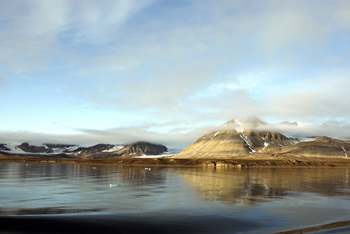
Spring has sprung in the Nation’s Capital. The famed cherry blossoms dotted the Tidal Basin and have since fallen. Pollen levels have started to sky rocket. On the West Coast, not a cloud scars the sky as perfect spring temperatures bring out people of all ages to soak in the beauty. What a great moment to celebrate Earth Day (or Mother Earth Day as the UN refers to it).
It’s a time to reflect on the environment. Yet, while we celebrate nature’s full bloom in the Mid-Atlantic states right now, times seem off balance elsewhere. Heavy spring snow storms blanket the Rocky Mountain region. Last year, the DC region experienced its hottest spring in decades. At one point you could see people in shorts strolling around in January! Something was definitely awry.
Halfway around the world, small island states in the Pacific fret over rising ocean levels that will leave communities and cultures literally be underwater. The UN predicts by 2025 more than two-thirds of the world’s population will experience water stress conditions. In the meantime, thousands in coastal communities are affected by tsunamis, hurricanes, and cyclones. All corners of the globe are experiencing violent thunderstorms and flooding, snow is being measured in feet, not inches, all too frequently, and farm land is experiencing desertification, where few seeds can sprout.
It’s almost cliché to say extreme weather is becoming the norm, but the sad fact is the dangerous extremes are due in part to climate change. The storyline hasn’t changed, but it keeps getting worse: pollution (mostly due to the burning of oil, gas, and coal) has dramatically affected the earth’s atmosphere, the polar ice caps are melting, ocean levels are rising, ocean temperatures are shifting, and weather patterns have become more dramatic (see this infographic from the UN, or this one on the basic climate change debate). In the 1990s, the UN documented that more than 600,000 people died from more than 2,500 natural disasters. Of those disasters studied, 90 percent were water related. A significant component of adapting to climate change has to deal with water resource management.
The calloused among us say, “Oh, those weather patterns will go away. It’s just a short-term issue.” The science says otherwise and many people are suffering while we wait to see that false prediction come true. Yet, misinformation prevails. In fact, recently a U.S. member of Congress used the great flood described in the Bible as an example of climate change.
Fortunately, in 2014 the UN’s Intergovernmental Panel on Climate Change (IPCC) will conclude its current cycle of work and publish its Fifth Assessment Report on Climate Change. At the end of October 2014, international negotiators will gather in Copenhagen to adopt and approve a synthesis report and a summary for policymakers. The process will also deliver resources to inform the public about climate change, including providing digital tools to bring experts to audiences, bringing the key individuals in the science community to the mainstream media, and facilitating ongoing conversations with governments, NGOs, and civil society to focus the world’s attention on climate change, its causes, and its solutions. This represents a moment to increase public awareness and foster political action, and we need to seize it.
The scientific community continues to provide solid evidence that climate change is real, it is caused by human activity and that we can take steps to solve the problem if we get started. The environmental community has swelled with support from the young and old. The business community has come around to the reality. There are economic, social, environmental, and human rights issues at hand. World leaders need to address the worsening impacts of climate change that threaten food and water security for hundreds of millions of people, undermining the most essential foundations of local, national, and global stability.
The United Nations continues to press countries to come to agreement. UN agencies and technical experts work to promote in-depth understanding of the science of climate change and the ways the world needs to address it. The IPCC’s work is a tangible example of how the UN continues to press the conversation.
The UN Deputy Secretary-General recently commented at a UNA-USA event that in politics we talk about Plan B, but we don’t have a Planet B. It’s time for sustainable solutions. This year’s Earth Day was terrific, but let’s hope we find a way forward to keep our future Earth Days as spectacular.



 View All Blog Posts
View All Blog Posts